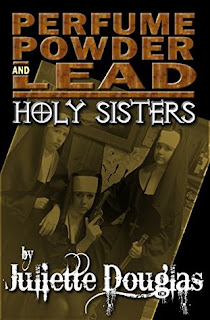Today I have a guest post from my friend, author Wendell Thorne, lawyer, barber, author, thinker and all-around decent guy. Wendell is the author of The Hot Dog King, Green Tequila Beach, and Don't Worry, It'll Grow Back.
Today Wendell is going to share with us his thoughts on parenting So, without further ado, take it away Wendell!
When my kids turn 18 and graduate from high school, my job is done.
Tons of people, when I tell them this, laugh. “Haha,” they say, “we’ll see about that.”
But the truth is, I already have a daughter who will be twenty-seven next month, and she’ll testify as to the veracity of my stance. I talk to her a few times a year and I see her now and then; sometimes I take her to lunch or, since she is a food-service professional, I’ll give her an exceedingly large tip if I visit her restaurant.
But my job as parent of her has been over for a while. I’m still her father and I’m still here, emotionally and intellectually, for her. She knows that. But the job of providing for her is done.
To many, I'm either a cold-hearted bastard or I'm deceiving myself. (Don't sell me short; I could be both).
Because my way of thinking is not common in our society today. Lots of parents pay for their kids to go to college, or help them financially along the way, or both. A few of these kids graduate and move onward and upward with their lives, but far too many continue to be unprepared for the future and frequently end up back living with their parents. The framework has been set; mom and dad are here to take care of me. They co-sign loans or maybe give the kid a credit card; which provides similar results--but is easier to carry around--as a can of gasoline and a Zippo lighter.
I had one 75-year-old customer who, when I asked him what he was doing that day, told me that he was “going to buy a car for my son.”
“Really? Why?”
“Well, he got drunk and totaled his truck the other night.”
I asked, “Why doesn’t he buy the car for himself?”
“Well, he’s had a lot of problems, couple of bad divorces, lost his job, you know…”
All too well, I thought. “How old is he?”
“Fifty-three.”
That’s the result of parenting one’s adult child. In my way of thinking that’s a form of child abuse, and I’m not going to be guilty of that.
Being a good, tough parent isn’t easy, especially if you’re what’s referred to as an “adult-child.” Children who grow older but do not develop thoroughly as an adult (mostly due to never being required to be responsible for his or her actions, or having a parent who continually “bails him out” of bad situations) make horrible parents. The growing epidemic of these kinds of legacies forms the rickety floor of an unstable society.
Capitalism is somewhat to blame as well. Parents who consume themselves with their vocations or professions frequently have little time or energy left to model other appropriate parental behaviors. Instead, and due to their job success, they toss money at their kids and purchase whatever a child wants in order to keep him or her “happy.” That’s ridiculous.
The Self-Esteem movement that began in the 1960’s is also a major adult obstruction to proper child development. Stoking a kid’s self-esteem is a fabrication, one that our kids are fully aware of. They know they came in last in the hundred-yard dash; telling them they did a good job and giving them trophies and ribbons only undermines the invaluable importance of failure while instilling a twisted sense of success into the child’s mind.
You’ve seen adults who aren’t grown-ups. They litter our political and business landscape. They are teachers and police officers and coaches and county commissioners and they fill the pulpits, courthouses and other positions of authority. They’ve lived with an unearned sense of propriety and an inflated sense of self-importance; they know better than you how you should live your life and they have the means and power to make you either fall in line or pay the consequences.
I don’t want my kids to be that kind of person.
And so, as much as it hurts (it does, by the way, it hurts), I will not continue to provide parenting-style support to them once they become adults. Now, that means that while they are developing I do the work necessary such that when they arrive at adulthood they’re not clueless or surprised that life isn’t fair, that they are responsible for their own actions and have a real ability to positively impact their own future. They will understand that nothing is about to be handed to them and that the learning curve is still steep before them. Patience and reason and grace and dignity and respect will be the tent poles of their lives.
And that’s a tremendous responsibility for me. Every day I awaken and hope I have what it takes to keep that fire burning, and every day I do something that doesn’t necessarily propel me in that direction.
But I keep on keepin’ on, fighting the good fight and counting the days, hoping I get all the foundation blocks in place before I set these birds free into the confusing world. After that, it’s up to them.
Because I love them, unconditionally and imperfectly.
And that’s not a tough job at all.
























































